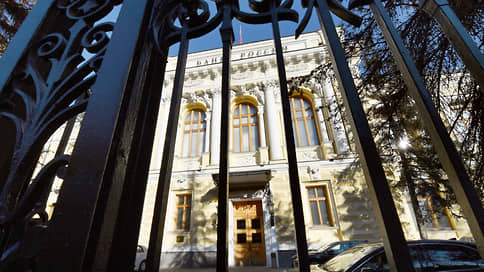The regulator showed softness – Kommersant
[ad_1]

The Bank of Russia may change the target indicator of the introduced limit on the balance sheet foreign exchange position of banks. The initial level of 20% of the capital turned out to be too conservative, the Central Bank admits. After negotiations with banks and an assessment of their balance sheets, the regulator will consider increasing the figure to 50%.
Based on the results of discussions with banks and assessment of their balance sheets, the Central Bank decided to revise the limit on the balance sheet foreign exchange position (a new indicator that will become mandatory for banks in the future). This was reported to Kommersant at the Bank of Russia.
The regulator decided to introduce a new limit following the financial crisis of 2022, provoked by Western sanctions in response to military operations in Ukraine. The Central Bank will establish a limit on open currency positions (OCP) in order to mitigate currency risks.
In a draft published at the end of 2022, the regulator proposed “a rather conservative level of such a limit (20%),” but now decided to soften it “to a level of about 50%,” the Central Bank said.
Now ORP is limited as the sum of the balance sheet and off-balance sheet positions, the new limit is introduced in addition to the existing ones. “This is necessary for banks to better balance assets and borrowed funds in each foreign currency, not relying solely on derivative financial instruments, which, in a crisis, can be terminated or become inaccessible to market participants, which we saw last year,” Kommersant explained. in the Central Bank.
Currency positions – the ratio of assets and liabilities in currency, in case of equality, the position is considered closed, in case of a mismatch – open. At the beginning of February 2023, according to the Central Bank, the assets of banks in foreign currency (before reserves and income tax) amounted to $297.3 billion, liabilities – $266 billion. The amount of currency risk at the beginning of February 2023 was 18.5% of the capital of credit organizations. This is significantly higher than the level of the beginning of 2022 – 5.7% of capital.
The new version of the document is under internal discussion in the Central Bank, the publication is expected in the second half of the year. As Sergei Khotimsky, First Deputy Chairman of the Board of Sovcombank, noted, the bank welcomes a more balanced approach. “It is certainly necessary to reduce these risks, but after such a level of stress for the foreign exchange market that we saw in 2022, it will take a little longer,” notes Mr. Khotimsky.
The expansion of limits is largely a forced situation, says Alexei Skorodumov, chairman of the board of Derzhava Bank. “Firstly, banks have less and less tools to regulate open-ended positions. Secondly, the ORP itself changes due to circumstances beyond the control of banks (for example, the same Moscow Exchange has the right to forcibly convert all liabilities into rubles), and thirdly, the valuation of banks’ foreign currency assets (for example, frozen in NSD) is generally a creative question, ”— notes Mr. Skorodumov. Therefore, without expanding the limits, banks will increasingly violate them, he believes. The goal of the Central Bank, according to him, is “to avoid precisely passive violation, and not to allow banks to simply arbitrarily sell or buy more currency.”
Alexander Danilovdirector of the department of banking regulation and analytics of the Central Bank, April 20:
“Such as it was before, when some banks had a balance sheet position of several capitals, in my opinion, in our reality simply should not be.”
The 20% limit would be very sensitive for the sector, given that today a number of banks, including large ones, continue to use relaxations in terms of maintaining open-ended positions or use individually agreed limits, Mikhail Doronkin, Managing Director of the NKR, explains. In addition, “the new indicator does not take into account hedging instruments when calculating, besides, if now the ORP is calculated from the total capital, then the new limit is from the underlying capital, which, as a rule, is noticeably less,” he clarifies.
“The most difficult situation is for banks with a large portfolio of Eurobonds in unfriendly currencies (dollar, euro, pound sterling) – such assets, even if payments are made in rubles, cannot be sold, respectively, it is necessary to form funding for them in the appropriate currency, which is quite difficult, especially if the bank is under sanctions,” Mr. Doronkin believes. As a result, he says, banks are forced to either resort to easing or use rather expensive overnight swaps to close their balance sheet positions.
Yury Belikov, Managing Director for Validation at Expert RA, admits that some players may have problems with the 50% capital limit, “if the issue of blocked assets in foreign currencies is not resolved before its introduction.” Difficulties are possible, he adds, if the blocked assets are not allowed to be ceded to legal entities specially created for these purposes, putting ruble claims on the balance sheet instead.
[ad_2]
Source link





